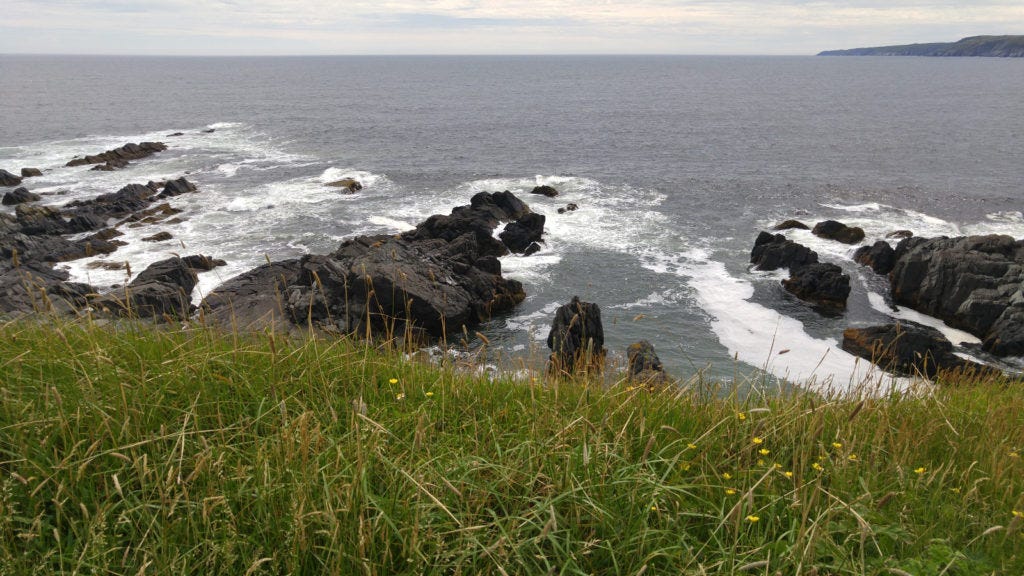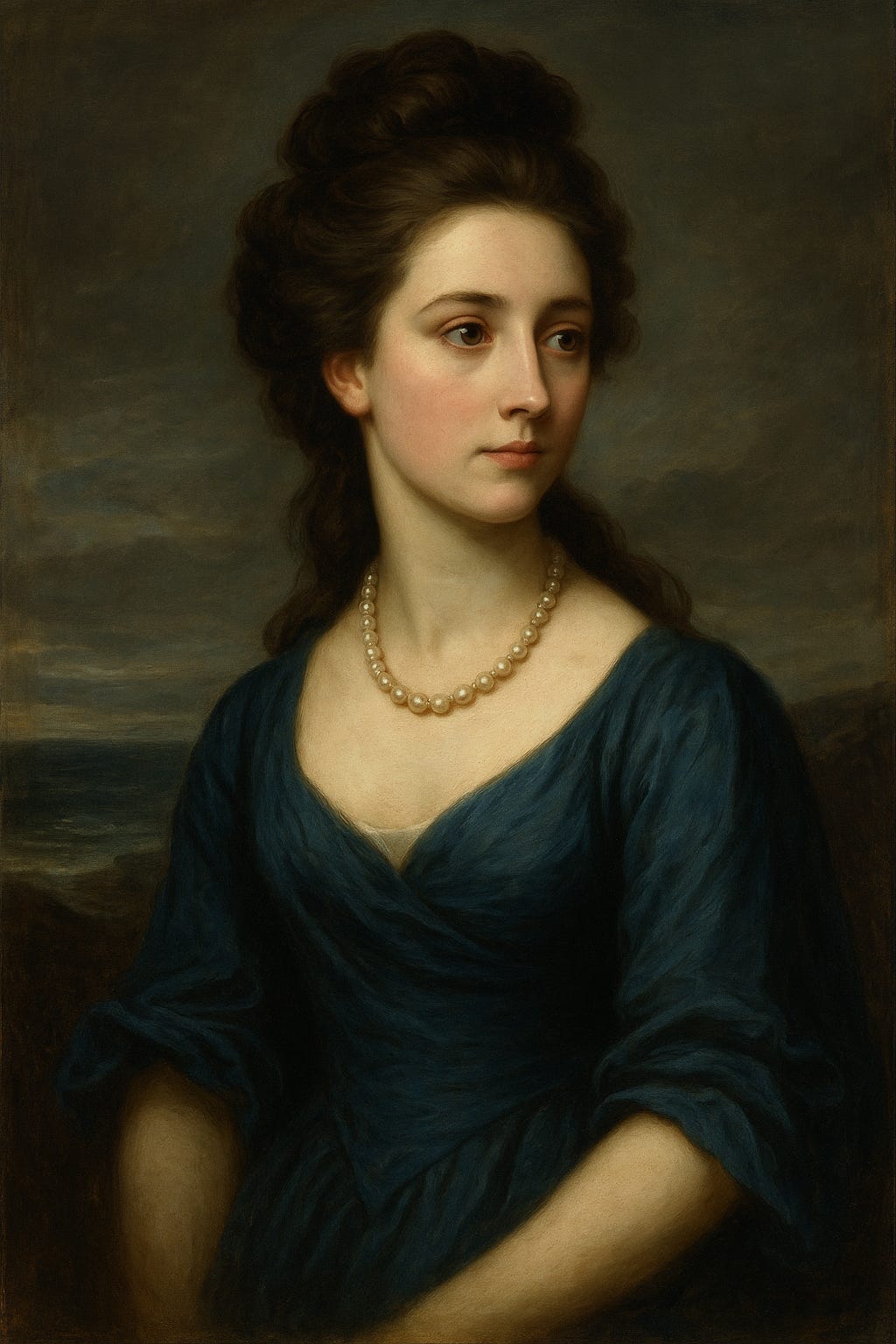Bay of Dead Men: The Runaway Lady Who Swapped Silks for Saltwater
How a Royal Runaway Became a Ghost of Trepassey.
It starts with pearls. Not the kind found in oysters, but the kind worn beneath powdered wigs, under the chandeliers of Georgian England. A girl born to silk and expectation. A girl who vanished.
And then it starts again, with a body on the rocks. A wooden hull broken to pieces. Salt water in the lungs, velvet tangled in kelp. A strange woman crawling from the wreck. Cold, barefoot, radiant.
Locals say her name was Mary. But the story begins as Lady Mary Alice Tucker—daughter of a court adviser, raised within sight of Buckingham Palace. She was meant for drawing rooms and diamond rings, not cod guts and sealing knives. But history loves its misfits.
London, 1750: A Bird in a Gilded Cage
Mary Alice was born into privilege, into a house that smelled of lavender and law books. Her father, Sir George Tucker, was said to be close to the King himself—though the official records play coy. They always do. The Tuckers were Navy-linked, influential, tied to ships and secrets, with hands just clean enough to pass for noble.
But Mary had no interest in courtship or custom. Her eyes were always somewhere else—out the window, toward the docks, where sailors laughed too loud and kissed girls they didn’t marry. It was there she first saw him: Patrick Molloy. An Irish sailor. A commoner. Everything she wasn't supposed to want.
A Ship, A Storm, A Vanishing
What happened next feels stitched together with silk and seawater.
In 1770, amid rising unrest, press gangs, and war rumors, Patrick deserted the Navy. And Mary—barefoot in the dark—ran after him. She took nothing but a spyglass, a string of pearls, and the kind of desperation that burns bridges behind it.
They boarded a merchant brig called Fanny, headed for the New World. It should have been a new beginning. But off the Grand Banks, the sky collapsed. A white squall came out of nowhere and snapped the ship in half like a matchstick. The water swallowed most of them.
Mary and Patrick, it’s said, crawled ashore near Trepassey, half-dead. A French-named harbour with a ghost’s reputation: La Baie des Trépassés—Bay of the Dead. It’s never been just a name. People vanish there. Bodies surface days later, bloated, glassy-eyed. Some don’t surface at all.
Keep reading with a 7-day free trial
Subscribe to The Newfoundland History Sleuth to keep reading this post and get 7 days of free access to the full post archives.





